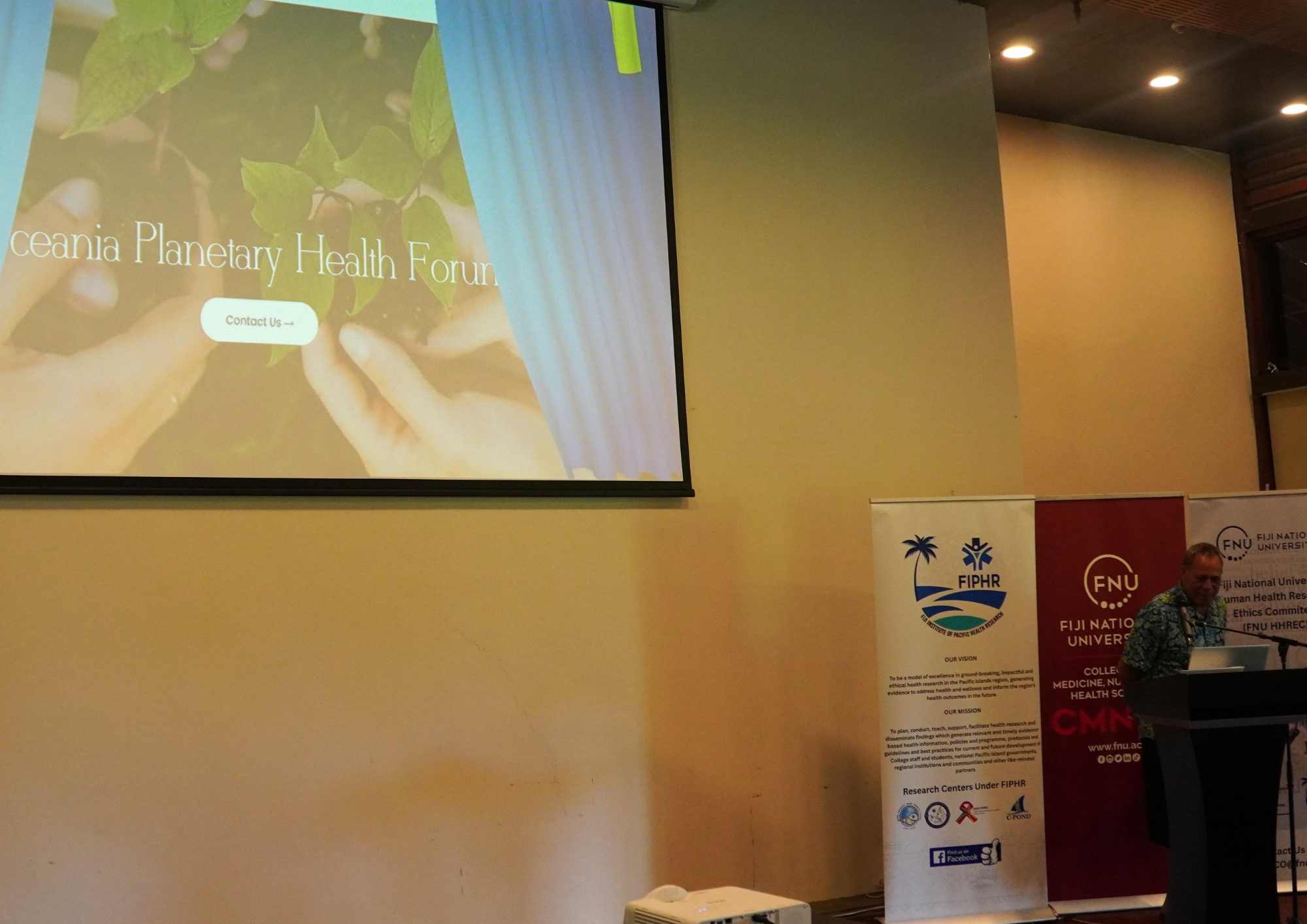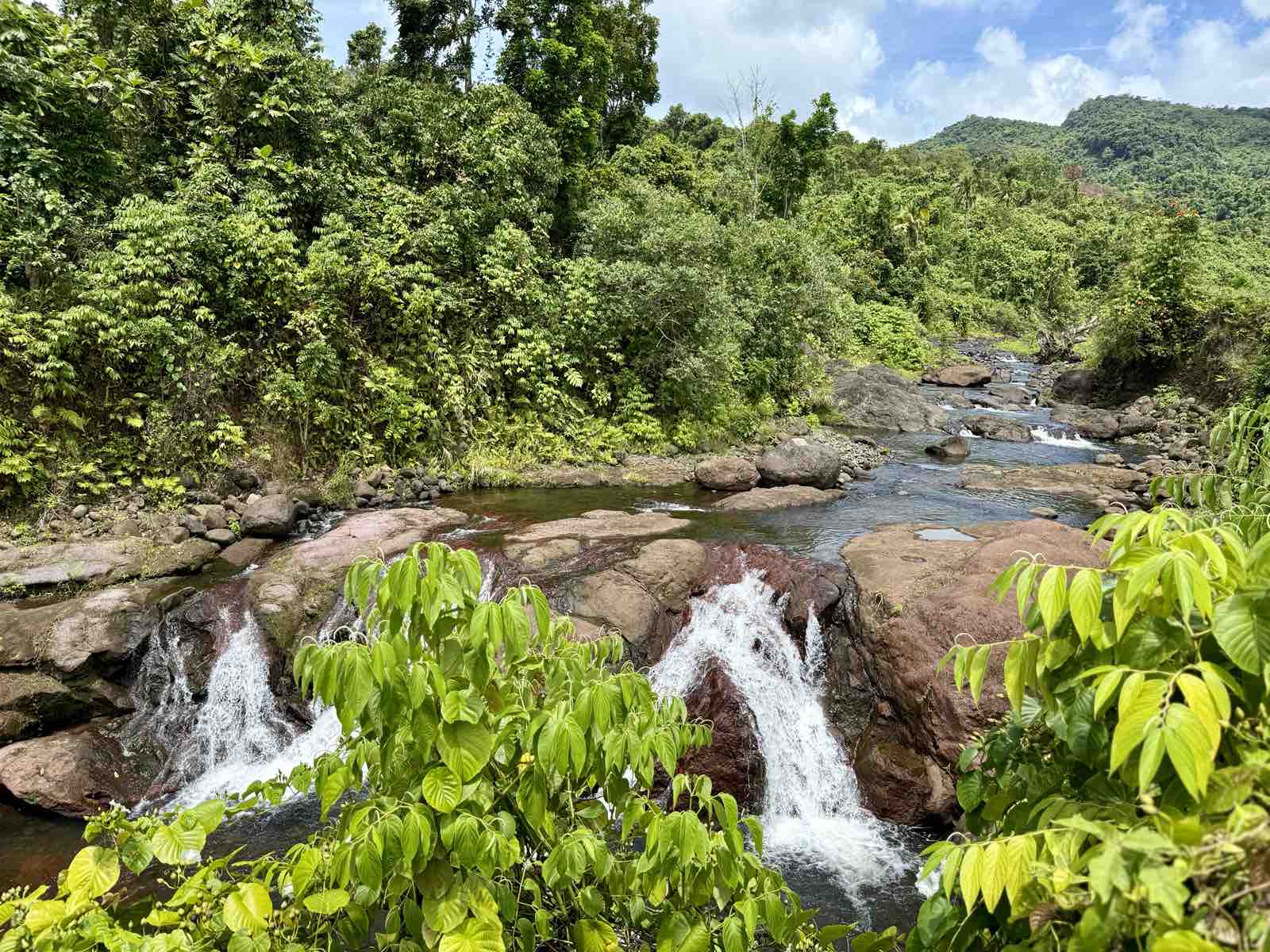Watershed Interventions for Systems Health – Pacific (WISH Pacific)
Why watershed management matters?
The condition of ecological watersheds affects the health of people and the downstream environments in which they live. Higher incidences of water-related bacterial diseases like typhoid and leptospirosis occur within watersheds that have large tracts of cleared land and higher densities of livestock accessing waterways. In addition, watershed alterations that promote flooding and standing water can accelerate mosquito-borne dengue transmission within rural communities. These same activities increase the amounts of sediments and nutrients entering waterways, with devastating impacts on freshwater and coastal coral reef ecosystems and thus the food, livelihoods and cultural practices of local people. Targeted watershed interventions and water management practices reduce water-related disease risk, improve downstream ecosystem condition and support overall system health.
The Watershed Interventions for Systems Health project embraces this integrated approach, working with national and local government, rural communities and the commercial sector to reduce infection risk and improve health and well-being within five river sub-catchments areas in Fiji. We are transforming action from reactive to preventative, improving the ability of integrated systems to predict, prevent, respond and recover from water-related infectious diseases and natural disasters.
The WISH Pacific Team
Learn more about the team.
Interventions
Learn more about our interventions.
Latest News
Read about our latest projects and news.
VIDEO
Learning about the WISH Fiji Project with Dr. Stacy Jupiter
VIDEO
WISH Fiji Project Mid-Term Review Workshop Reflection
VIDEO
Watershed Interventions for Systems Health Approach Documentary
-

Monash GIG Students Explore Planetary Health with RISE and WISH Pacific
In a powerful exchange of knowledge and community engagement, the Watershed Interventions for Systems Health (WISH) and Revitalizing Informal Settlements in their Environments (RISE) teams recently hosted nearly 300 students from Monash University. As part of the Global Immersion Guarantee (GIG) program, students arrived in three cohorts – two in December 2025 and a final block on January 13, 2026.
-

Fiji Positioned as Global Planetary Health Hub with Launch of OPHF Website
The Oceania Planetary Health Forum (OPHF) website www.oceaniaphf.com was officially launched by Dr Berlin Kafoa – Director Public Health Division SPC. The dedicated digital platform marks a critical and unifying step in addressing the complex environmental and human health challenges facing the Pacific. This launch reinforces Fiji’s growing global leadership, as Fiji is now the
-

Healthy Islands at 30: A Call for Urgent Revitalisation of the Planetary Health Vision
30 years ago, Pacific Islands health ministers declared the visionary Healthy Islands idea on Yanuca Island, Fiji. It laid out a profound, holistic framework: “Healthy Islands should be places where children thrive, people live and age with dignity, and ecological balance is a source of pride”. This approach anticipated the principles of today’s global Planetary
